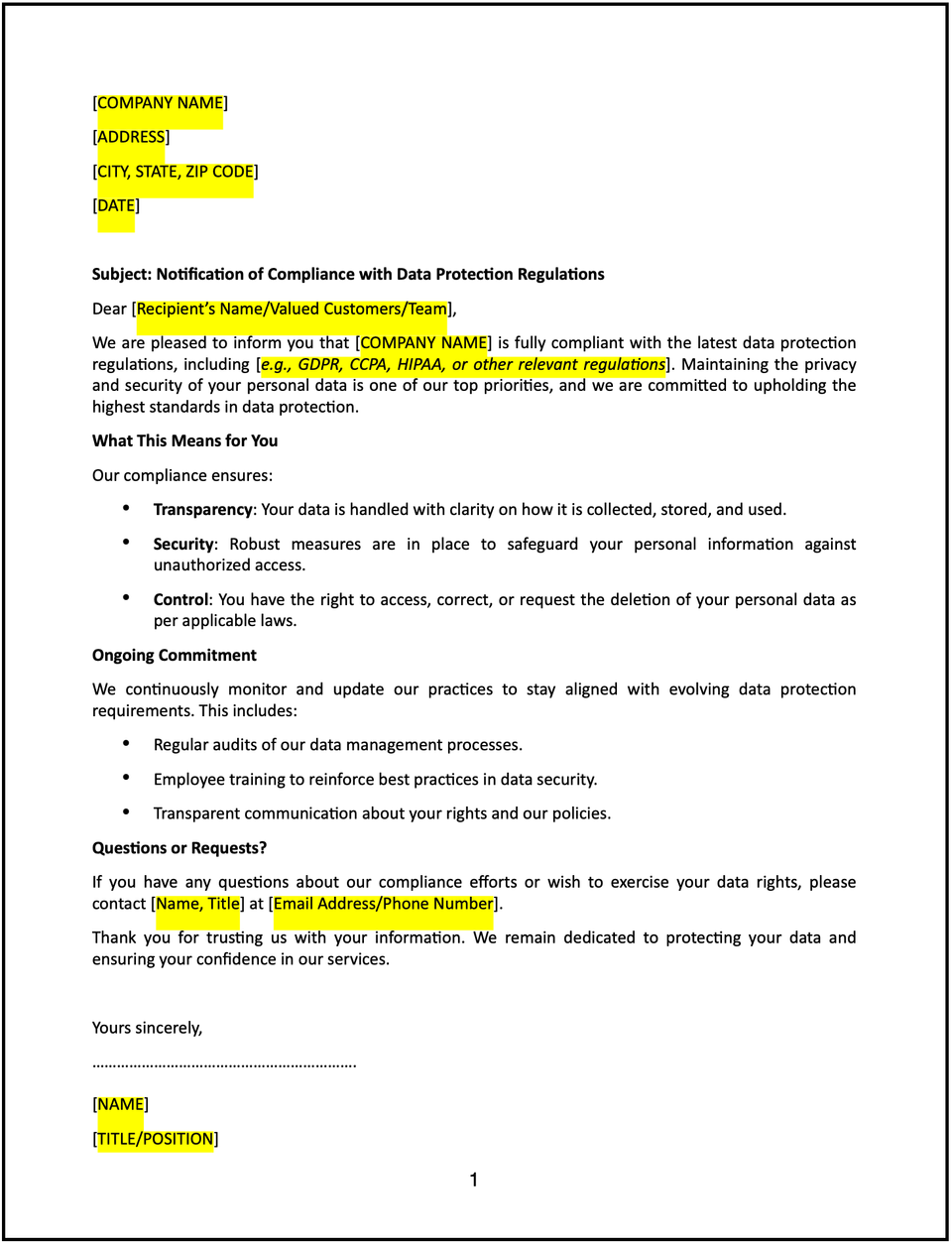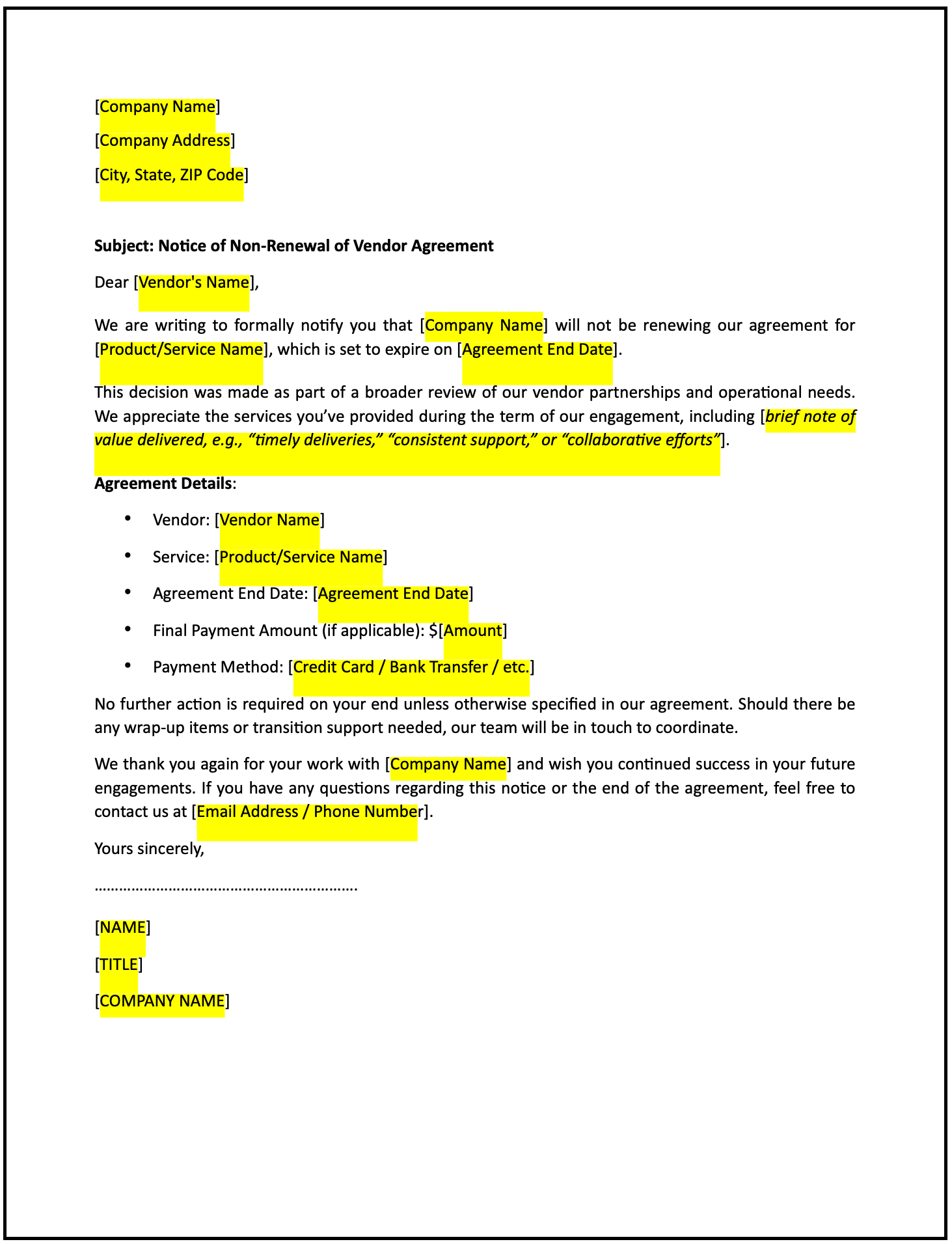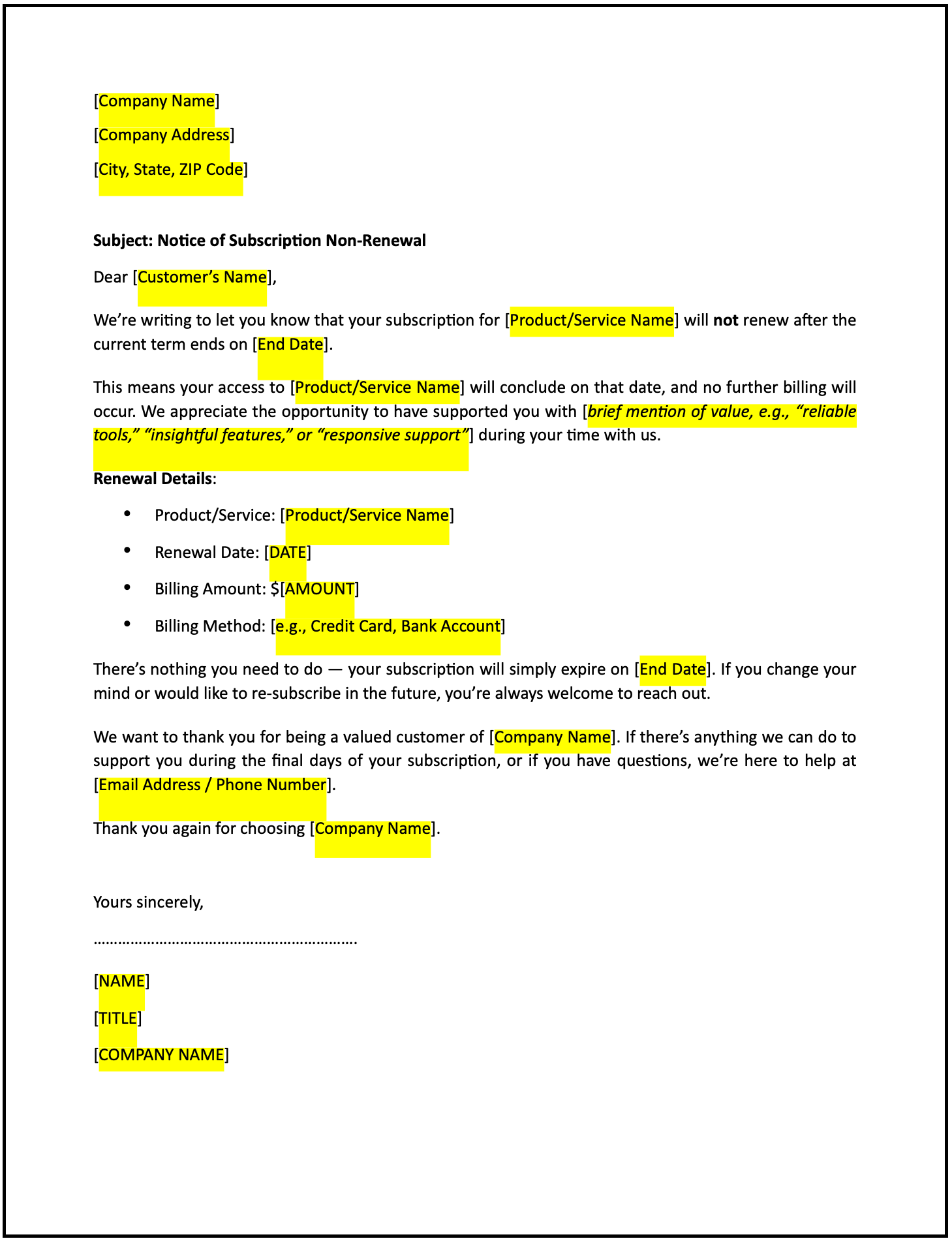Letter of compliance with data protection regulations: Free template

Letter of compliance with data protection regulations
A notification letter of compliance with data protection regulations is a formal communication used to assure stakeholders, customers, or partners that an organization adheres to relevant data protection laws and standards. This letter highlights the measures implemented, demonstrates accountability, and fosters trust by showcasing the organization’s commitment to safeguarding data.
How to use this letter of compliance with data protection regulations
- Open with an introduction: Address the recipient respectfully and state the purpose of the letter—to confirm compliance with data protection regulations.
- Provide context: Briefly explain the importance of data protection and how compliance aligns with legal and ethical standards.
- Highlight key measures: Outline specific steps or policies implemented to ensure compliance, such as encryption, regular audits, or employee training.
- Reference regulations: Mention the relevant data protection laws or frameworks your organization complies with, such as GDPR, CCPA, or HIPAA.
- Reassure stakeholders: Emphasize your commitment to ongoing compliance and data security to build trust.
- Include contact details: Provide a point of contact for stakeholders to ask questions or seek further clarification.
- Maintain a professional tone: Ensure the letter is clear, polite, and focused on transparency.
Benefits of using letter of compliance with data protection regulations
This letter ensures a structured and professional way to communicate adherence to data protection laws while fostering trust and transparency. Here’s how it helps:
- Builds trust: Reassuring stakeholders of compliance demonstrates accountability and fosters confidence.
- Reflects professionalism: A well-crafted letter showcases the organization’s dedication to ethical data handling.
- Supports transparency: Sharing compliance measures reduces uncertainty and reassures stakeholders.
- Enhances reputation: Demonstrating compliance positions your organization as responsible and trustworthy.
- Mitigates risk: Proactively communicating compliance minimizes potential concerns or misunderstandings.
Tips for writing an effective letter of compliance with data protection regulations
- Be specific: Clearly outline the measures taken to ensure compliance and reference the applicable regulations.
- Use professional language: Maintain a respectful and informative tone to encourage understanding and trust.
- Provide context: Briefly explain why compliance is important for the organization and stakeholders.
- Highlight benefits: Emphasize how compliance safeguards data and contributes to stakeholder confidence.
- Keep it concise: Focus on the key points while ensuring the tone is professional and reassuring.
Frequently asked questions (FAQs)
Q: What details should I include in this letter?
A: Include the relevant regulations, compliance measures implemented, and contact information for further inquiries.
Q: Should I personalize the letter?
A: Yes, addressing recipients collectively or individually ensures clarity and attentiveness.
Q: Who typically sends this letter?
A: Compliance officers, data protection officers, or organizational leadership typically send this letter.
Q: How formal should this letter be?
A: The tone should be professional and transparent, focusing on clarity and trust-building.
Q: When should this letter be sent?
A: Send the letter periodically or following significant compliance updates to keep stakeholders informed.
Q: Can this letter include a summary of recent audits or certifications?
A: Yes, referencing certifications or audits can strengthen the credibility of your compliance claims.
Q: Is acknowledgment from the recipient required?
A: While not mandatory, requesting acknowledgment ensures recipients are aware of your compliance efforts.
This article contains general legal information and does not contain legal advice. Cobrief is not a law firm or a substitute for an attorney or law firm. The law is complex and changes often. For legal advice, please ask a lawyer.


